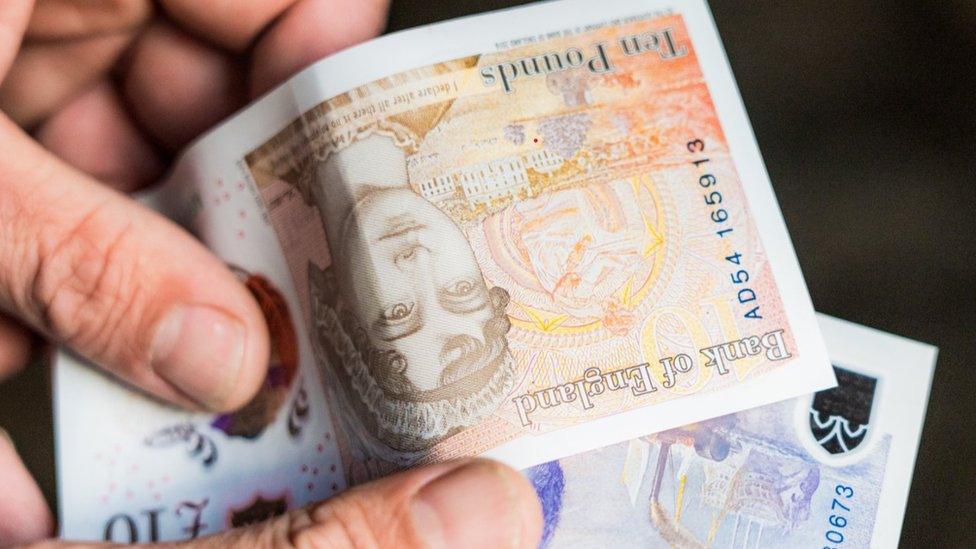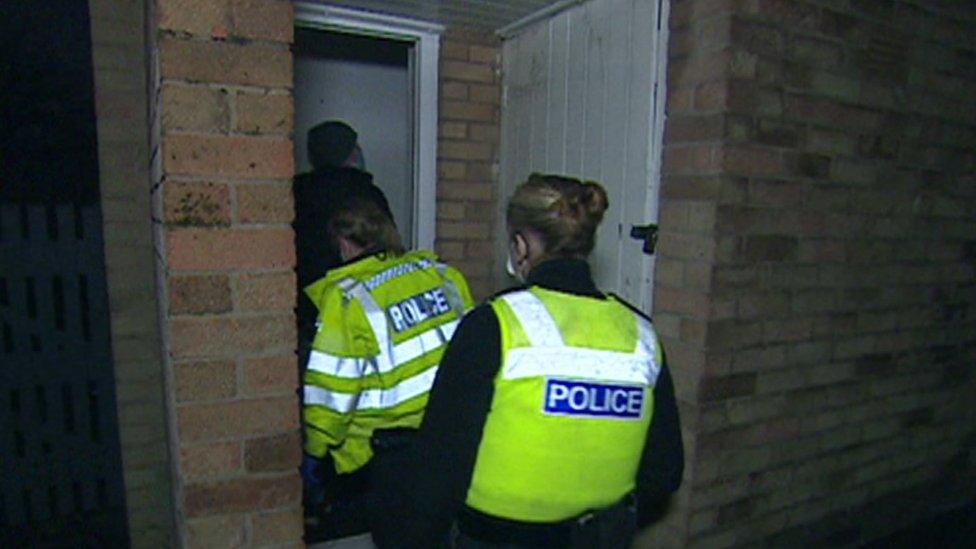Benefit fraud: Government to spend £500m to tackle overpayment
- Published

The government is to spend £510m, starting in the new financial year, to tackle record levels of benefit fraud.
A record £8.4bn was lost last year, mainly because of overpayments on the universal credit benefit and fraud, official figures show.
The new cash will allow the Department for Work and Pensions to recruit about 2,000 fraud investigators.
"We will make every effort to recover the fraud," said Work and Pensions Secretary Therese Coffey.
Weaknesses in the design of universal credit have led to increasing levels of fraudulent payments in recent years.
The benefit, which its creators claimed would cut £1bn from the fraud and error bill, has seen its level of fraud rise from 2.7% in 2016 to 12.8% last year.
Fraud levels across all benefits were 3% last year.
The pandemic led to a doubling of the numbers applying for universal credit, from about three million in 2019 to six million last year.
Pandemic cheating
In order to process the claims quickly, some of the rules were relaxed, leading to organised criminal gangs taking advantage of the system.
"At the height of the pandemic, we wanted to make sure that people got access to support where it was needed," said Ms Coffey.
"Some people took advantage of that, and that's why we are going after them now.
"We can now increase the pace at which we do that, but the main focus is to prevent fraudulent claims in the first place."

Police and benefit fraud investigators raided this house in Birmingham earlier this month after an investigation
The DWP said its cyber teams had succeeded in preventing organised criminals from claiming £1.9bn in benefits last year.
This new investment, spread over three years, will allow officials to carry out more checks on new claims, including checking that people live at the address they say they do, and that they have provided the right bank details.
The DWP says it is also carrying out retrospective checks on more than 900,000 claims made during the height of the pandemic last year.
"Sometimes in fraud, we can appear to be the baddies," said Donna James, a fraud team leader in Inverness.
"But its not like that.
"We have to try and protect the public purse, make sure people get the right money, because that money is for the most vulnerable in society."
Years of fraud
Officials working at the DWP have told the BBC they have been frustrated and angered for years by the unwillingness of senior civil servants who oversee universal credit to tackle rising fraud levels.
They say the new investment will be too late to significantly reduce fraud in this financial year.
"There were thousands of fraudulent claims on just a few bank accounts and little in-built detection to stop this happening", said one official.
"The DWP is effectively hiring 2,000 extra staff to clear up the universal credit mess, not the Covid mess".